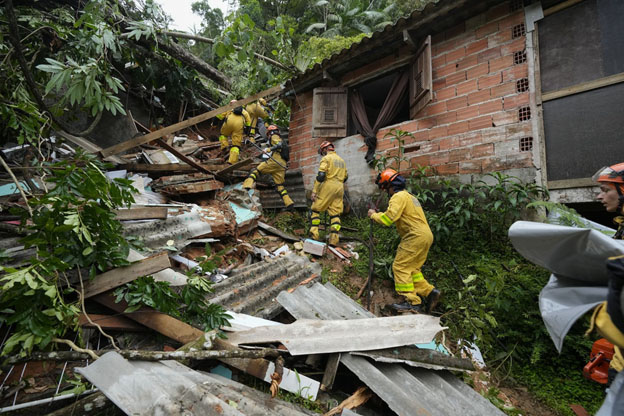As if the development agenda of the Caribbean is not already packed with a host of imposing and in some instances, immediate challenges, weather forecasters at Colorado’s State University (CSU) are putting the region on notice that an “extremely active” 2024 Atlantic hurricane season is likely to cause countries in the region to have to ‘park’ some of the plans already listed on their development agendas to focus on what, in some instances, are likely to be significant life-threatening emergencies.
An article published in the Trinidad Guardian, recently, paints an intimidating picture of the potential consequences of what it says is likely to be an “extremely active” 2024 Atlantic hurricane season. The widely watched CSU forecast predicts five major hurricanes this year, with winds above 111 miles per hour that could directly affect a Caribbean region that has previously – and in more ways than one – been taught costly lessons by previous hurricanes. This time around, the CSU is pulling no punches about the likely severity of the anticipated ‘round’ of seasonal hurricanes, asserting that it anticipates what it describes as “a well above-average probability for major hurricanes making landfall along the continental United States coastline and in the Caribbean.”
Setting aside the accustomed loss of life and physical damage customarily inflicted by hurricanes, the phenomenon, this time around, could significantly derail the still incomplete Food Security Terminal being pursued here in the Caribbean to strengthen its food security bona fides, an undertaking that will rely heavily on favourable weather to enhance food production. Just how damaging hurricanes can be to countries in the Caribbean is reflected in a 2018 International Monetary Fund (IMF) study that set out the scale of the devastation that hurricanes have inflicted in the region.
With some countries in the region reportedly already being among the twenty-five most vulnerable countries in terms of disasters per capita, the current hurricane predictions could hardly have come at a more awkward time. It is no secret that the region is pinning its hopes on favourable weather, among other considerations, to see through the creation of a regional food security initiative that will be crucial to alleviating food security challenges already confronting a number of CARICOM countries, some of which are reportedly among the twenty-five most vulnerable nations in terms of disasters per capita.
While the Caribbean’s vulnerability is characteristic of small island states, the region has typically suffered more damages than others, the IMF report says. Average estimated disaster damage as a ratio of GDP was 4.5 times greater for small states than for larger ones, but six times higher for countries in the Caribbean. Further, according to the IMF study, the Caribbean is seven times more likely to be hit by natural disasters than smaller states. The IMF study also focuses on the economic cost of such disasters for the Caribbean, noting that for some countries, the damage may well exceed the cost of the overall economy.





